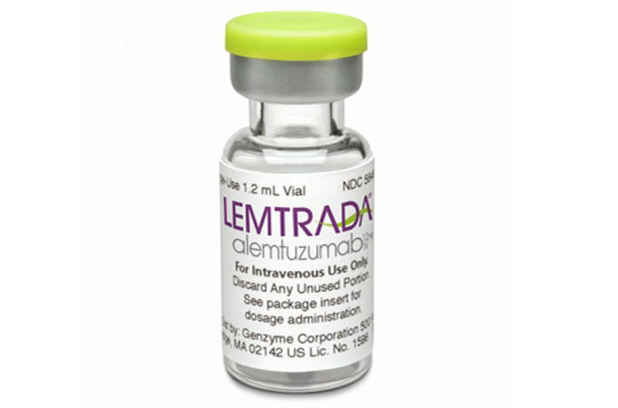Link Between Lemtrada, Mortality More Common Than Previously Reported
Written by |

Treatment with Lemtrada (alemtuzumab) is associated with the death of patients with relapsing-remitting multiple sclerosis (RRMS) more often than previously reported and appears to be most common during the first month, according to a European review.
The study, “Adverse events with fatal outcome associated with alemtuzumab treatment in multiple sclerosis,” was published in the journal BMC Research Notes.
Lemtrada works by inducing a marked decrease in the levels of immune T cells and B cells, which are involved in MS mechanisms, followed by a gradual recovery starting one month after treatment. Although considered safe, reports suggest that this RRMS therapy is associated with severe and possibly fatal adverse reactions resulting from complications such as the bacterial infection listeriosis and alveolar hemorrhage (bleeding into the lungs’ tiny air sacs).
Such reports prompted a team from Norway to conduct a systematic search for data on deaths following treatment with Lemtrada, marketed by Sanofi Genzyme, using the European database EudraVigilance on suspected adverse reactions linked to medicines.
The search, conducted in November 2018, included reports from clinical trials and real-world clinical practice. Immunosuppression, infection, or enhanced inflammation soon after treatment, as well as secondary autoimmunity reactions months later, were among plausible consequences of taking Lemtrada, according to its known safety profile and biological effects.
Ten fatal adverse reactions, nine among females, were identified as being most probably related to Lemtrada. Six of these cases had not been previously reported. All 10 patients were adults and died after receiving at least one treatment cycle. They ranged in age from 34 to 47 (data missing in one patient).
Nine cases were deemed probably caused by Lemtrada, with six of these patients dying within one month after receiving just one treatment infusion.
Five patients died from infection or multiple organ failure and septic shock. One patient (a woman) died from intracerebral hemorrhage after developing hypertension (high blood pressure). As it occurred soon upon treatment, and as Lemtrada has been linked with early strokes, this fatal case was also considered probably associated with the therapy.
The other three patients (all women) who died probably due to Lemtrada experienced secondary autoimmunity — reappearance of active B cells — eight to 18 months after the last infusion. One of these patients died from autoimmune hepatitis (inflammation of the liver), another from autoimmune hemolytic anemia (abnormal red cell breakdown), disseminated intravascular coagulation (blood clots blocking small blood vessels), and septic shock, and the third from brain hemorrhage and immune-mediated thrombocytopenia (low platelet count), which did not resolve with corticosteroid therapy.
The investigators disagreed substantially on two cases. One, ultimately considered possibly related to treatment, had a report of agranulocytosis — severe reduction in levels of granulocytes — 17 months after the second course of Lemtrada, followed by colitis (inflammation of the colon), pneumonia, and death due to multiple organ failure.
The second patient, who had aggressive MS, started to experience epileptic seizures a few days after taking Lemtrada, followed by pneumonia, sepsis, and colon bleeding, dying after 40 days. As the patient’s status epilepticus was considered more likely caused by MS, causality between treatment with Lemtrada and death was deemed unlikely.
Seven other cases were also deemed unlikely to be related to Lemtrada. Their causes of death included suicide (two patients), cancer (two), and status epilepticus (one). The remaining cases were newborns who died one day after induced labor and whose mother was treated with Lemtrada during pregnancy.
Overall, “fatal adverse events related to treatment with alemtuzumab [Lemtrada] occur more frequently than previously published in the literature, and seem to be most common during the first month after treatment,” the researchers said.
Cautioning that the frequency of deaths in people treated with Lemtrada cannot be calculated because the number of patients on this therapy is not disclosed, the team added that “patients, physicians, and regulatory authorities should be aware of the serious risks associated with [Lemtrada], which must be weighed against the high and durable clinical efficacy.”
These findings were shared with the Pharmacovigilance Risk Assessment Committee of the European Medicines Agency, prompting a safety review of Lemtrada and a restriction of its use in patients with continuing flare-ups despite at least two prior disease-modifying therapies (DMTs), those ineligible for other DMTs, and patients benefiting from this medication.





